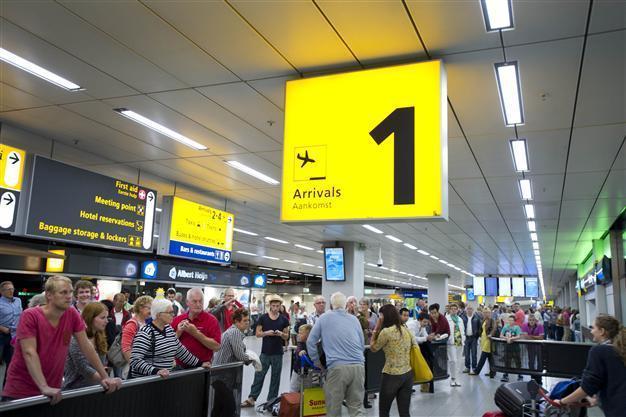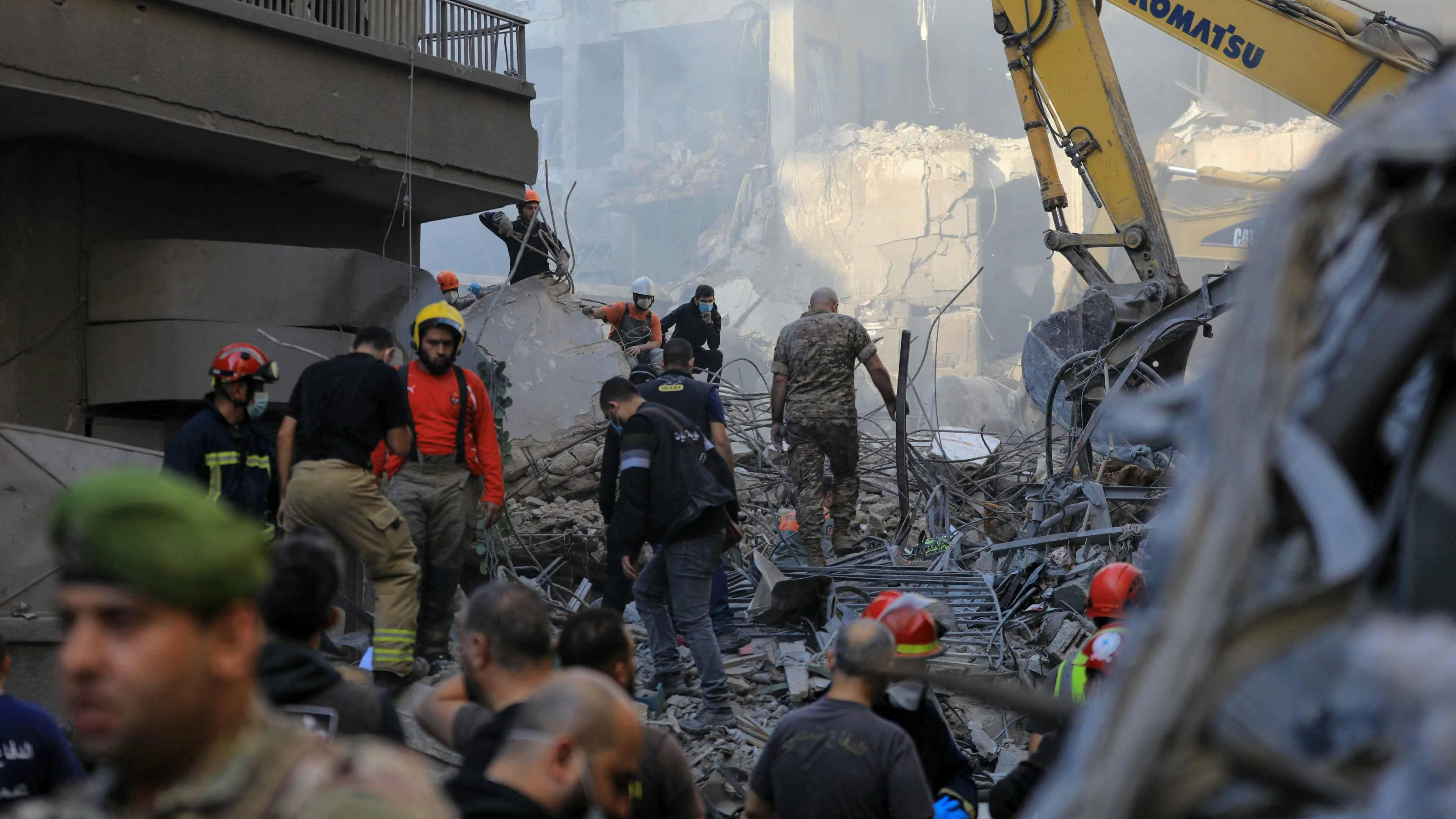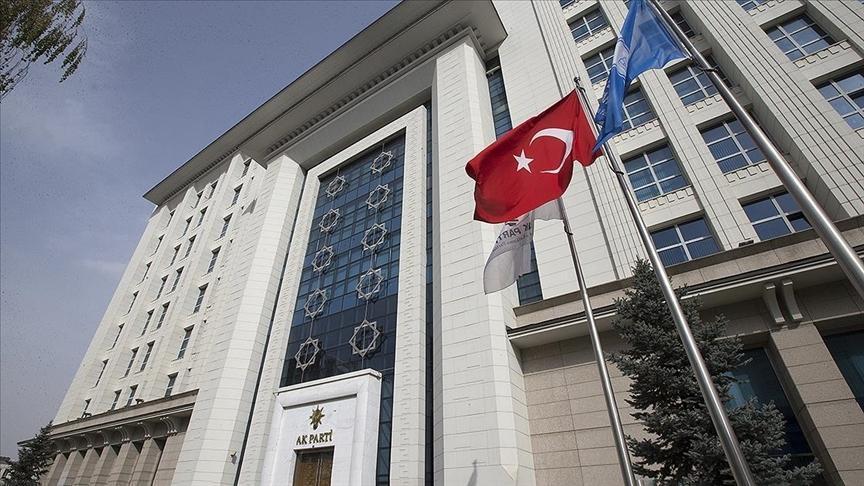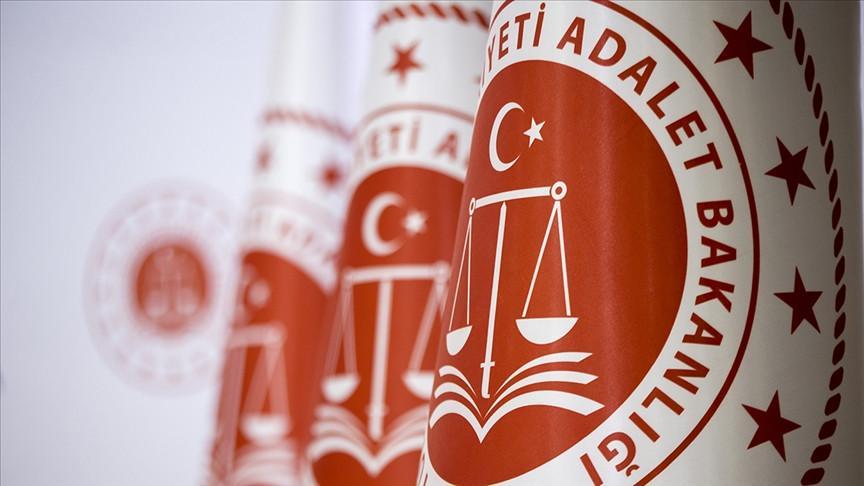Travel firms cancel holidays as violence grips Egypt
FRANKFURT/LONDON - Reuters

Dutch tourists returning from Egypt arrive at Schiphol Airport in Amsterdam, The Netherlands, on August 18, 2013. Dutch tourists have been issued with a warning by the Foreign Office, which has advised against all but essential travel to Egypt because of deepening unrest in the country. AFP photo
Violence sweeping Egypt hit the nation’s tourism industry on Friday as European governments warned holidaymakers to stay away from its Red Sea resorts, prompting some travel agents to stop all trips to Egypt.German tour operators Thomas Cook Germany and TUI Germany, part of Europe’s largest tour operator TUI Travel , cancelled all trips to Egypt after the German foreign ministry advised against travelling to the beach resorts, which are popular with European sun-seekers and divers.
They said customers would get the chance to rebook to other destinations free of charge.
Air Berlin, Germany’s second biggest airline, said it was still operating scheduled flights to Red Sea resorts but would not accept new bookings to Egypt until Sept.15. Gulf carrier Etihad has a stake of nearly 30 percent in the company.
Germany’s foreign ministry advised against going to the resorts, which help attract about 1.2 million Germans to Egypt each year. It stopped short of a full warning that would mean evacuating tourists.
“Foreign Minister Guido Westerwelle urges German citizens to take this travel advice very seriously,” a foreign ministry spokesman said.
Similar advice from Sweden’s foreign ministry led Swedish tour operators to stop all trips to the resorts of Sharm el-Sheikh, 400 km (250 miles) from Cairo on the Sinai Peninsula, and Hurghada on the Egyptian mainland.
Belgium followed suit, extending a travel warning to tourist resorts on Friday that led to travel agencies Neckermann and Jetair cancelling all trips to Egypt until Aug. 31.
Hundreds of thousands of Egyptians took to the streets on Friday, two days after attacks by police on supporters of Egypt’s first freely elected president Mohamed Mursi, who was overthrown last month, left over 620 people dead.
The United States on Thursday warned Americans against travelling to Egypt and urged U.S. citizens living in Egypt to leave the country.
Millions of foreigners visit Egypt each year to laze on its beaches, tour ancient ruins and cruise along the Nile. The worsening unrest deals a further blow to a sector that has suffered during more than two years of political instability since the ousting of Mursi’s predecessor Hosni Mubarak.
Demand for holidays at the isolated Red Sea towns far from Egypt’s cities has held up relatively well and the latest travel warnings will come as a bitter blow to local business owners.
“Something like 10 percent of our bookings have been cancelled,” said Mohammed el-Sharbagy, owner of a diving centre in Hurghada. He said the media coverage of the deadly violence was partly to blame.
“Most of the events are 600 km away in Cairo and in Alexandria, but people just don’t realise that,” he told Reuters by telephone.
“Downtown Hurghada is absolutely quiet. All I saw today were some people and police sitting together protecting the church.”
CONFRONTATION IN CAIRO
Egypt attracted 14.7 million visitors in 2010 including 2.8 million Russians, 1.5 million Britons and 1.3 million Germans, according to OECD figures.
Three years ago the $13 billion industry accounted for 11 percent of GDP, according to the World Tourism Organization.
The number of tourists fell to 9.5 million in 2011 before recovering to 11.2 million in 2012. In the first five months of 2013, tourist numbers rose 12 percent year-on-year.
When Mursi, an Islamist, came to power last year, many tourism professionals feared his government would ban alcohol and bikinis, putting off their European customers.
That never came to pass.
But Egypt’s image as a welcoming destination suffered again in June, weeks before Mursi’s overthrow, when tourism minister Hisham Zaazou tendered his resignation over Mursi’s decision to appoint as governor of Luxor a member of a hardline Islamist group blamed for slaughtering 58 tourists there in 1997.
Russia, the biggest source of tourists to Egypt, said its citizens should not travel to the country and its tourism agency advised against tour operators promoting Egyptian holidays.
Luxury tour operator Kuoni said it was contacting all clients in the UK who were due to go to Egypt in the next 21 days to offer them alternative holidays or a refund if no acceptable alternative option could be found.
Egypt is in the top 10 destinations for both TUI and Thomas Cook, though is more popular as a winter sun destination.
Travel advice issued by governments affects tourism as travel health and cancellation insurance will often not apply to locations deemed unsuitable for travel.
Some holidaymakers already in Egypt were advised not to leave their resorts and trips were cancelled to major attractions including Luxor and the Valley of the Kings in the south and Saint Catherine’s Monastery in Sinai, the world’s oldest active Christian monastery.
France advised against travel to all of Egypt in early July while Switzerland on Friday also extended its advice to warn holidaymakers away from the beach destinations.
Britain’s foreign office has advised against travelling to Egypt except to Red Sea resorts, although a spokesman said this guidance was under constant review.
He said some tourists in resorts at Hurghada had been advised not to leave their hotel grounds after one man was killed in clashes there on Wednesday.
Thomas Cook’s British arm said travel was operating normally but it was monitoring the situation closely. An evening curfew imposed at Sharm el-Sheikh on Wednesday had been lifted.
















